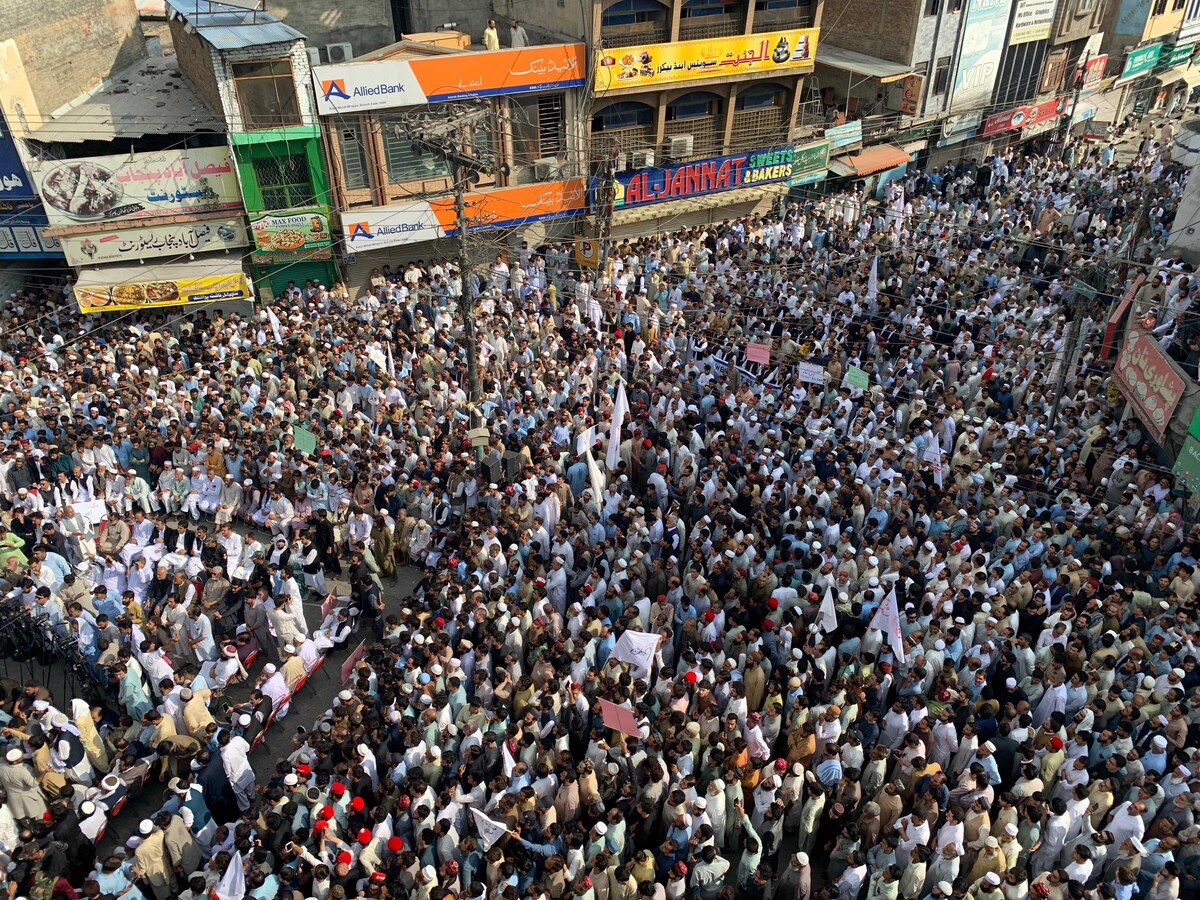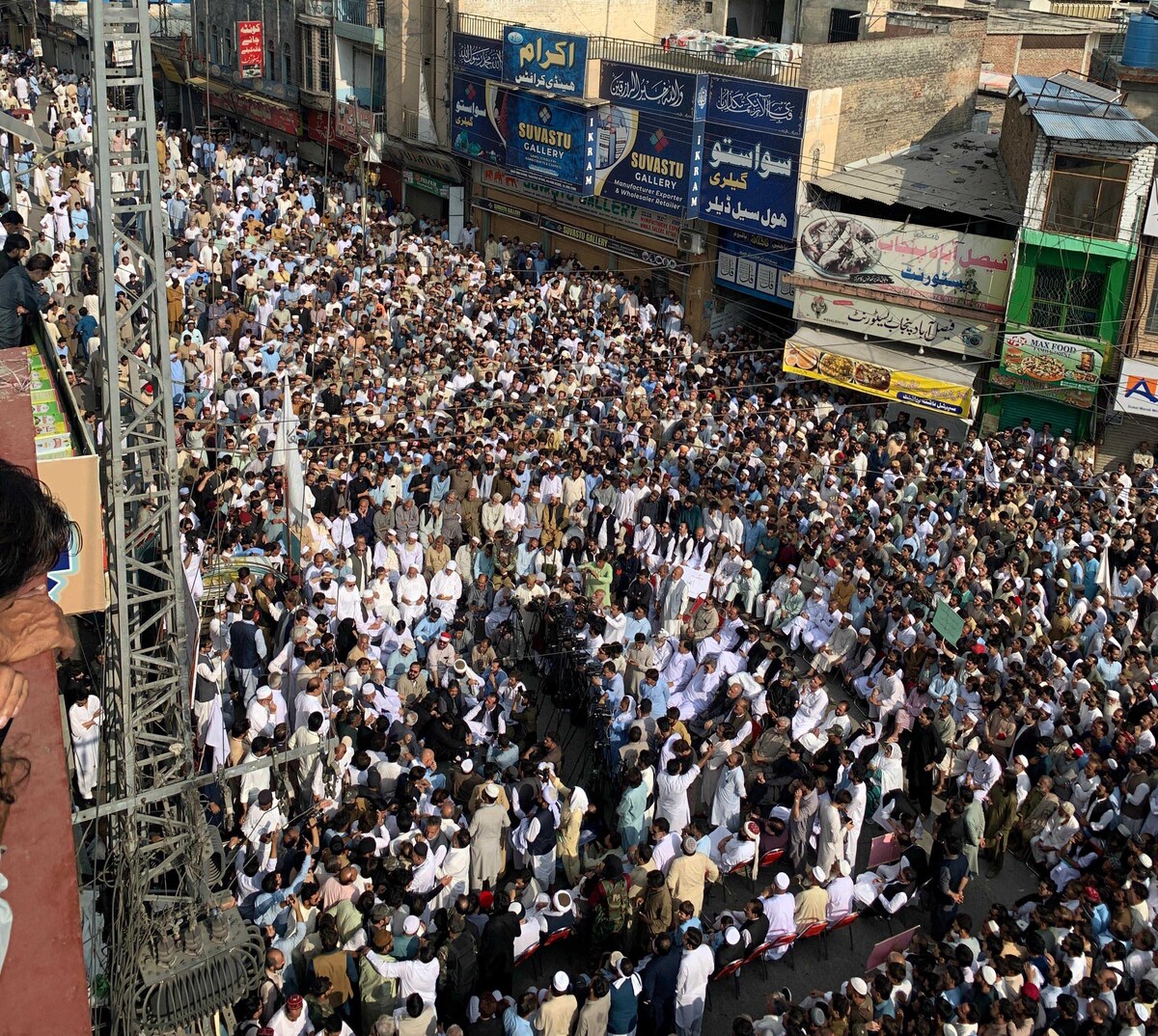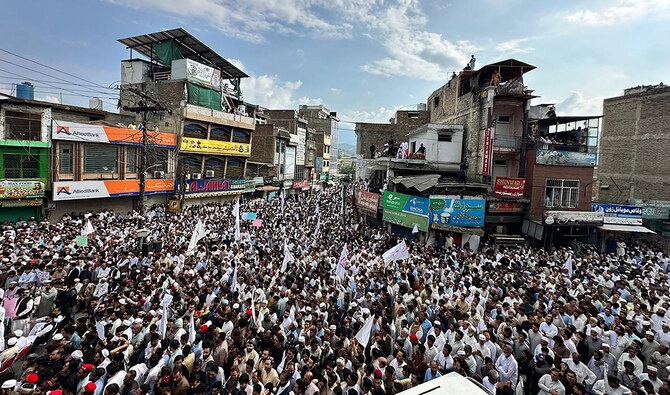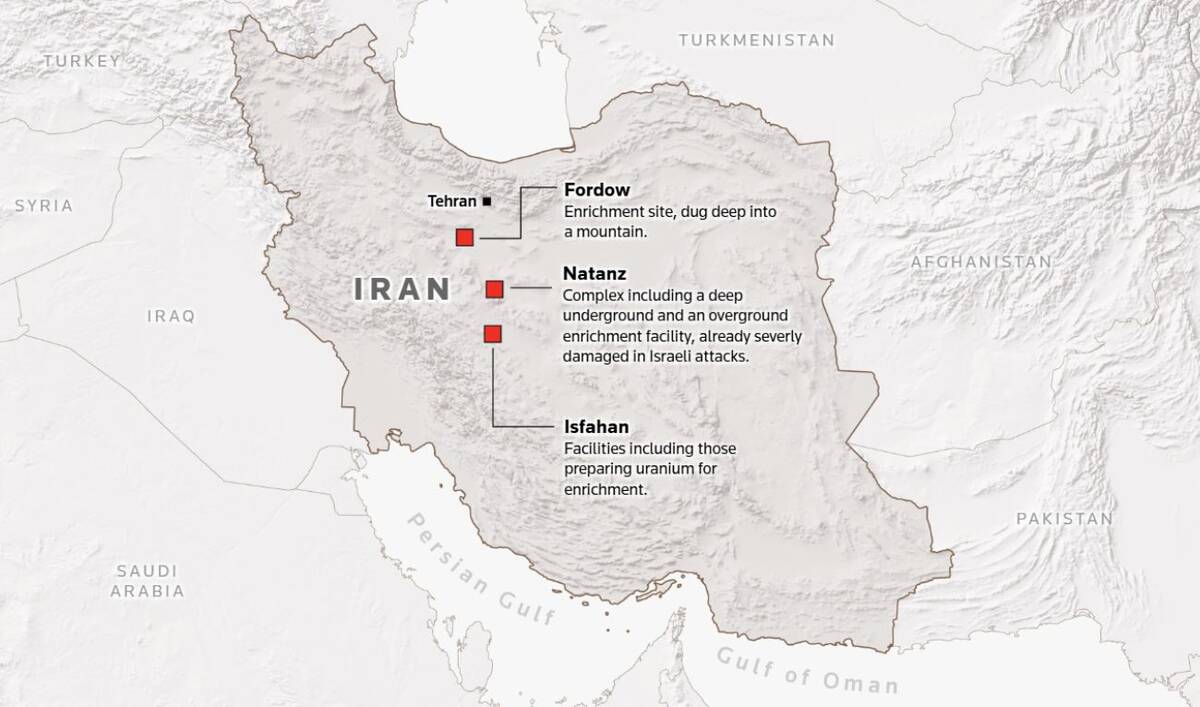PESHAWAR: Thousands came out in protest in Swat valley in northwestern Pakistan on Friday, days after a roadside bomb hit a convoy of foreign diplomats visiting the area, killing a police officer in their security detail.
While most militant attacks in the Khyber Pakhtunkhwa province bordering Afghanistan are claimed by the Pakistani Taliban, also known as the Tehreek-e-Taliban Pakistan (TTP), the group has distanced itself from last week’s attack on the diplomats convoy, which took place as it was en route to a hill station and ski resort called Malam Jabba. All the nearly dozen diplomats were unhurt.
Pakistan has seen a rise in militancy in recent months, with most attacks taking place in Khyber Pakhtunkhwa. Islamabad says fighters mainly associated with the Pakistani Taliban or TTP group frequently launch attacks from hideouts in Afghanistan, targeting police and other security forces. Islamabad has even blamed Kabul’s Afghan Taliban rulers for facilitating anti-Pakistan militants. Kabul denies the charges.
Over 80 policemen have been killed in attacks, ambushes and target killings in KP in 2024, according to police data.
“The protest is meant to give a message for the restoration of peace,” said Mazhar Azad, a representative of the Swat Qami Jirga that led Friday’s protest in a famous town square in Mingora city called Nishat Chowk.

Activists and supporters of different political parties and local residents gather to take part in a demonstration against militancy following a blast targeting diplomatic convoy, in Mingora city, in Swat district of Khyber Pakhtunkhwa province on September 27, 2024. (Photo courtesy: Mazhar Azad/ Swat Qaumi Jirga)
“We want peace at any cost, we want an end to terrorism. We don’t want any kind of war on our land.”
The protest was joined by representatives of nearly all political parties, members of the Pashtun Tahafuz Movement civil rights group as well as activists, lawyers and trade union representatives from Swat.
Friday’s protest took place despite the Deputy Commissioner’s Office in Swat issuing a “high-level” threat alert for district Swat on Thursday, banning large public gatherings.
“We are being told that militants are present in the mountains of Swat,” Swat Qami Jirga member Khalid Mehmood Khan said as he addressed the gathering. “If this is true, then it is evidence of state failure. We will no longer accept unrest and militancy in Swat under any circumstances.”
When asked about public reservations about the deteriorating security situation in Swat and the rest of Khyber Pakhtunkhwa, a spokesperson for the Khyber Pakhtunkhwa government, Muhammad Saif, said KP Chief Minister Ali Amin Gandapur had constituted a fact-finding committee on the attack on foreign diplomats:

Activists and supporters of different political parties and local residents gather to take part in a demonstration against militancy following a blast targeting diplomatic convoy, in Mingora city, in Swat district of Khyber Pakhtunkhwa province on September 27, 2024. (Photo courtesy: Mazhar Azad/ Swat Qaumi Jirga)
“The government of Khyber Pakhtunkhwa is doing everything possible to restore and maintain peace in the province.”
Spokesperson for Swat Police, Moen Fayaz, said Friday’s protests had concluded in a “peaceful manner.”
“People of Swat and police have given sacrifices in the past and the police are ready to fight against militancy in future,” he told Arab News. “Both government and public respect the sacrifices of police and police will fight in the future as well to restore peace in the region.”
Pakistani army and counter-terrorist forces maintain a strong presence in Swat valley, which has long been a hotbed of militant insurgency, though militants have stepped up their attacks since late 2022 after breaking a ceasefire with the government.
In 2012, Islamist militants shot and wounded Nobel Peace Prize laureate Malala Yousafzai in the valley. TTP insurgents took partial control of Swat Valley in 2007, before being driven out by years-long military operations.

















